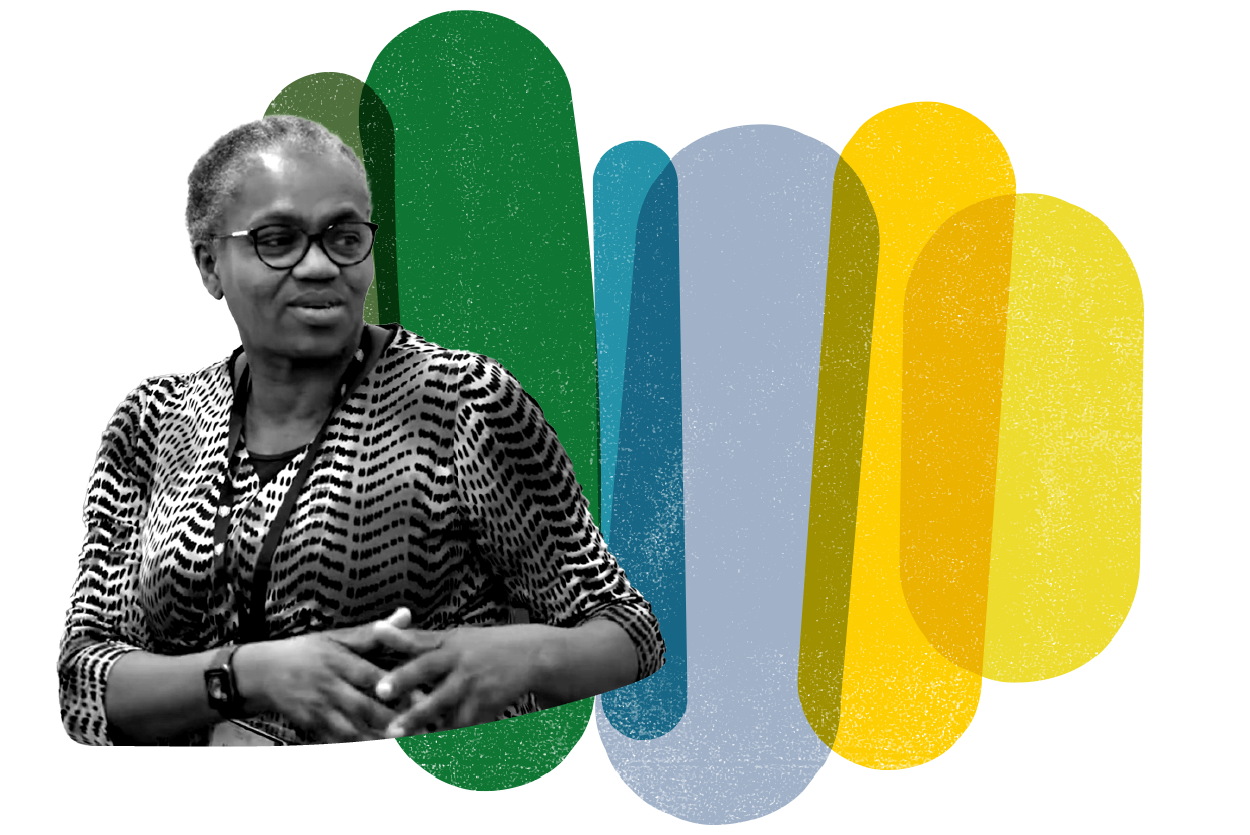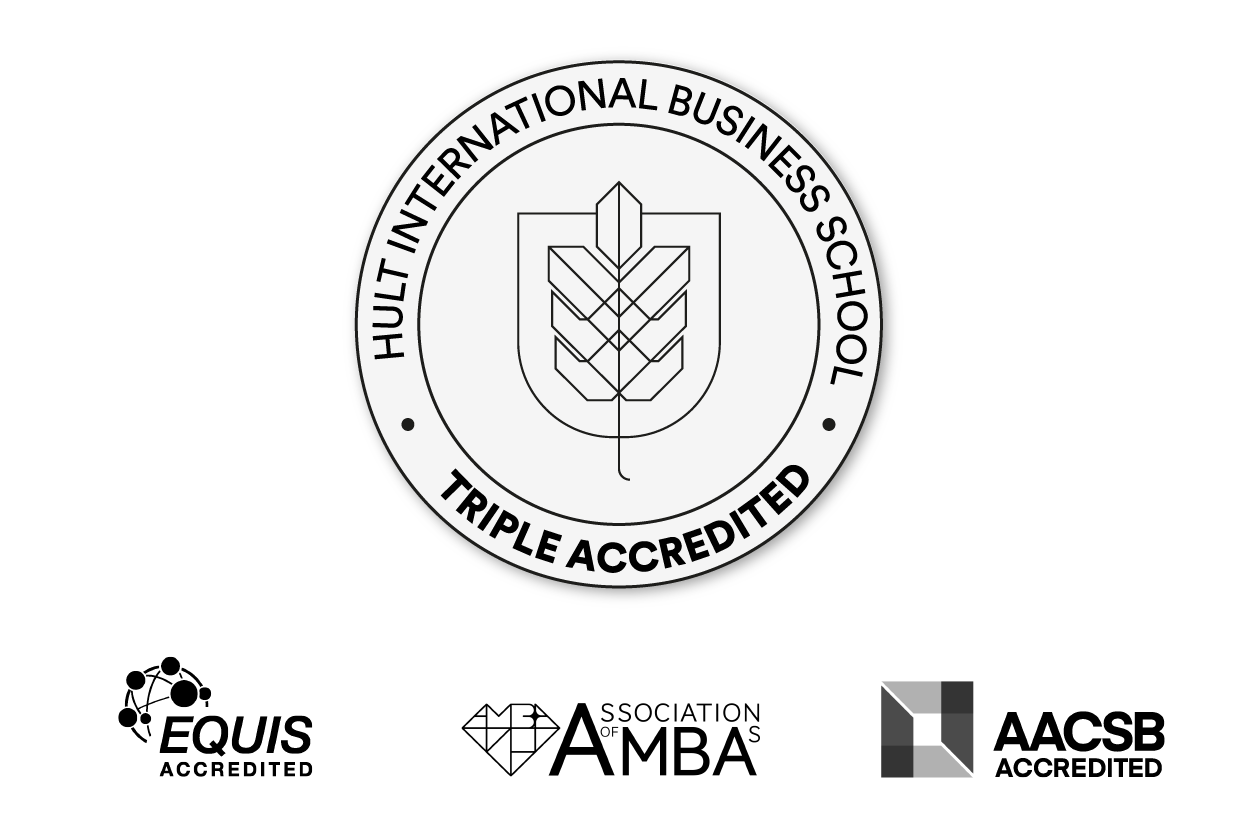
Changing the world through action inquiry
The Doctorate in Organizational Change is a practice-based doctorate for those who want to make an impact that matters.
The people who seek out this transformative doctorate degree are usually those who feel a sense of emptiness about their professional lives. Tired of the relentless pursuit of accumulation and profit, they wish to explore some deeper territories beyond conventional organizational needs.
Key program features
Flexible part-time study
Hybrid / 5 years
A community-based approach to learning
Dedicated supervisor support
Access to world-renowned, research-active faculty
Your DOC at a glance
Executive education as we know it is typically based on teaching existing theories, leadership models and tools. As theory advances, course content evolves, and business schools like Hult teach progressive topics about innovation, technology, and social change.
What our doctoral programme offers is the opportunity to go beyond the confines of those traditional leadership and management models. To undergo a deep personal and professional transformation over a five-year phase of inquiry.
We invite participants to draw upon the family of methods commonly called Action Research or Action lnquiry, supported by faculty supervisors.
PLAY VIDEO

Phase 1 - Engaging in Inquiry
Inquiry Proposal
Substantiate your acceptance paper and subsequently develop your 8,000 word inquiry proposal.
Three workshops covering research paradigms; ontology, epistemology, writing skills, methodology & ethics.
28 hours group supervision + 4 hours individual supervision.
Phase 2 - Developing Inquiry
Transfer Paper
Establish a rigorous basis for your inquiry and submit a 20,000 word transfer paper at the end of this phase.
Five faculty-led workshops exploring forms of inquiry & presentation + advanced writing skills.
28 hours group supervision + 6 hours individual supervision
Phase 3 - Testing Propositions
Thesis Preparation
Get your work out into the world. Present to academic peers, external practitioners and academic conferences. Relay emerging insights to DOC peers.
Participant designed & led workshops supported by faculty.
34 hours group supervision + 32 hours individual supervision (8 hours post-Viva)
Dissertation and Viva
Dissertation
80,000 word dissertation submission
Bi-annual progress report to be discussed with faculty supervisor.
Mock viva in front of peers.
Final Viva to defend your work in front of a doctoral panel including faculty and external practitioners.
Meet the Deans and Faculty
Faculty at Hult teach and help students apply tools and theories to solve major, contemporary business problems. The faculty selected to teach the Doctorate in Organizational Change are award-winning researchers in both academic- and practitioner-related channels.
- Dr. Kerrie Fleming, DOC Academic Director
- Dr James Traeger, Faculty Supervisor
- Dr Steve Marshall, Faculty Supervisor
- Dr Katherine Semler, Faculty Supervisor
- Dr Margaret Gearty, Faculty Supervisor
- Dr. Geoff Mead, Faculty Supervisor
- Dr. Gill Coleman, Faculty Supervisor
- Dr. Kathleen King, Faculty Supervisor
- Dr. Nick Wildling, Faculty Supervisor
- Dr. Matt Gitsham, Faculty Supervisor
- Dr. Josie Gregory, Faculty Supervisor
- Dr. Richard Hale, Faculty Supervisor
Upcoming events
Doctorate in Organizational Change
Online Open Day
Applications are now open for the next intake of our Doctorate in Organizational Change, starting in January 2026. We'd love you to join our virtual open day on May 20, 2025 to find out more.
Set up to mirror one of our supervision sessions, this is your chance to learn about the program design and delivery as well as meet our faculty and alumni for a highly interactive and enjoyable afternoon.
FAQs
We're here to help! Find the answers to your most commonly asked questions below.
If you can't find an answer to your question then please contact us.
Where is the program accredited?
The Doctorate in Organizational Change PhD is a US degree, accredited by the New England Commission of Higher Education (NECHE), a regional accrediting organization recognized by the US Council for Higher Education Accreditation (CHEA). Regional accreditation is considered the most prestigious form of accreditation in the US. As a US degree, the Hult PhD can be attested anywhere.
Can I still apply if I have a master's in a non-business-related field?
We ask for a Master's Degree to demonstrate your capability for academic writing and commitment to postgraduate study. While many of our doctoral students hold Master's Degrees in business or MBAs, several participants have held Master's Degrees in a range of fields from cardiology to coaching; sustainability to social psychology.
What is the difference between a PhD and a DBA?
A DBA, like its PhD counterpart, requires advanced research skills that lead to a dissertation or thesis and the conferral of a doctoral title. However, DBA programs often focus on the application of theory to a real-world business problem and are aimed at working professionals with years of extensive managerial experience. For more information on the difference between a PhD and a DBA, take a look at this article on the Hult Blog.
When will my supervisor be assigned?
Supervisor-student matches are communicated to new students immediately after matriculation.
Can I get a scholarship?
Currently, Hult does not provide sponsorship or scholarships for our doctoral programs. Note that Hult and Ashridge alumni are eligible for a 10% discount.
Will I need to publish my dissertation to get my degree?
No, we do not require the publication of research output in journals. The Hult DOC requires all research output to be of publishable standard—that is, of a standard that is acceptable by journals and conferences. While you are not required to publish, students are strongly encouraged to present at prestigious conferences.
What is the cost of the program? What are the payment options?
The program costs £60,000, plus a £450 application fee. There are payment plans available to spread the cost over the duration of the program.
How often will I have lectures? When are they held?
You will meet at the Hult Ashridge campus for one 5 day residency each year for faculty led, participant led and group supervision. Other compulsory workshops will take place online and the exact dates are already scheduled for the four year duration of the PhD. The remaining group and individual supervision takes place online as a flexible arrangement between the supervisor, group and individuals.
Can I transfer credits from a previous or current doctorate program?
Transfer credits from a previous or current doctorate are not accepted into the program.
When I found Ashridge, what struck me was the modular structure of the program, its onsite teaching, and a cohort of other apprentice researchers and small tutor groups to exchange ideas and experience. This all contributes to a strong sense of community. I’m still regularly in touch with my group and supervisor today.
Andrew Mountfield
Doctorate in Organizational Change
%
63
average completion rate for Doctorate in Organizational Change
%
90
pass rate in highest achieving cohort
20
average cohort size on a Doctorate in Organizational Change intake
Accreditation
Delivered at our UK Ashridge Campus, the Hult Doctorate in Organizational Change is a US degree, accredited by the New England Commission of Higher Education (NECHE), a regional accreditation body recognized by the US Council for Higher Education Accreditation (CHEA). Regional accreditation is recognized as the most prestigious accreditation in the US. As a US-accredited degree, Hult’s DBA can be attested anywhere.
Hult is recognized by business education’s three most prestigious international accrediting bodies: The Association to Advance Collegiate Schools of Business (AACSB International), Association of MBAs (AMBA), and EQUIS (The European Quality Improvement System). We are the first business school in the US to achieve this triple accreditation, which is held by just one percent of business schools worldwide.

Contact Us
Ask Us Anything
Our admissions team are ready to answer any questions you might have. If you'd like talk to our admissions officer, please enter your details and we’ll be in touch.
